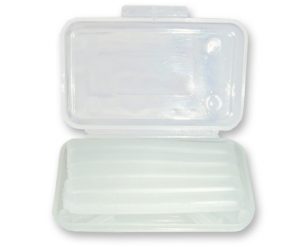Table of contents
Mouth sores are very annoying and I’m sure you’ve heard that with fixed orthodontics they are more frequent (ahem, ahem…) although sometimes the appliance can cause some chafing, nowadays brackets are increasingly smaller and rounder and chafing is not very frequent.
Why can a sore appear?
- Oral infections of viral or bacterial origin (e.g. pharyngitis or laryngitis).
- Immune system disorders
- Temporary hormonal changes (e.g. menstrual cycle)
- Nutritional deficiencies
- Lack of irrigation or insufficient salivation
- Chafing or biting
- Chronic stress or depression
- Poor hygiene
It is important to know the cause so that you can solve it. For example, in the summer holidays with the heat we tend to eat less, if you lead a very active life, spend a lot of time in the
If you lead a very active life, spend a lot of time in the sun and drink less water than your body needs, sores can appear in your mouth.
A typical cause is school trips, too little sleep, eating poorly and talking so much that the mouth dries out and rubs against the appliance.


How can you prevent sores?
- Use orthodontic wax if you notice any chafing.
- Maintaining good oral hygiene
- Eating plenty of fruit and vegetables to ensure you get enough vitamins and minerals in your diet.
- Avoiding alcohol, tobacco and irritating foods (coffee, spicy foods,…)
- Avoiding very hot foods (coffee, cheese from pizza,…)
- Drinking plenty of water and fresh food to keep you well hydrated.
- If you have an outbreak of several large sores in your mouth, consult your GP because it may be a medical condition that requires a blood test and systemic treatment.
What do I do if I have a sore?
- If there is any part of the fixed appliance that is rubbing against you, place a ball of orthodontic wax on the bracket or archwire. Ask us for an appointment as soon as possible to prevent further damage. Remember to ask us for your orthodontic wax when you come in if you need it.
- If you have a removable appliance (such as Invisalign), the edges can sometimes rub because the appliance is laser cut and in rare cases there is a small burr. With a new nail file or a metal nail file disinfected with alcohol, rub the rubbing area until it softens.

- As a home treatment you can rinse with salt water (1 glass of warm water with 1 teaspoon of salt dissolved in it), the salt helps the wound to heal.
- You can also rinse with hydrogen peroxide diluted in water to achieve an antiseptic effect (reduce the number of bacteria).
- Avoid irritating foods such as citrus fruits, tomatoes, vinegar, alcohol, coffee, cola and carbonated drinks.
- Eat calmly, choose soft foods as long as the sore is very uncomfortable.

- Choose foods rich in vitamin B (sardines, pulses, salmon, nuts), folic acid (bright green vegetables: spinach, broccoli, chard, green asparagus, lettuce…) and iron (nuts, sesame, green leafy vegetables, pulses and wholemeal products).
- It is very important to keep your teeth scrupulously clean. Brush 3 times a day with a soft toothbrush for 2 minutes each time.
- Drink plenty of water and fresh, uncooked foods for extra hydration.
- You can use bioadhesive chlorhexidine gels to disinfect wounds (Chlorhexidine lacer gel, Periokin gel).
- You can use GUM Afta Clear spray with hyaluronic acid to relieve discomfort.
- Never use alcohol rinses as they not only burn the wound (and healthy mucosa) but also delay healing.
- If you have a lot of discomfort, you can take an analgesic.
If you see that the sore persists or there is something that is out of place (loose bracket, arch that has come out,…) call us on 952 77 77 47 so that we can solve it as soon as possible. Remember that we have a black phone for our patients’ emergencies in case it happens to you on a public holiday.



